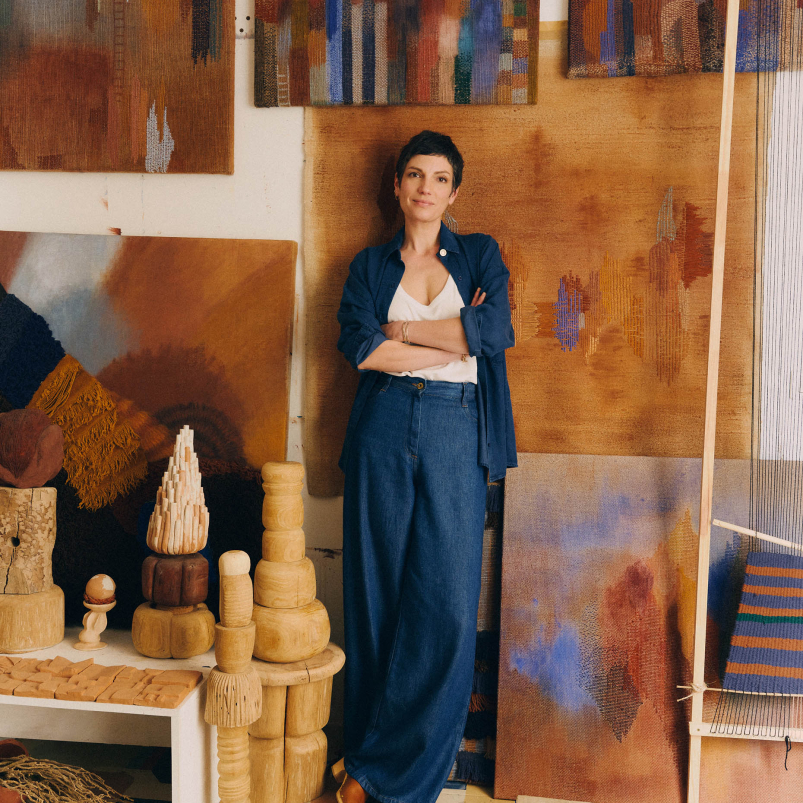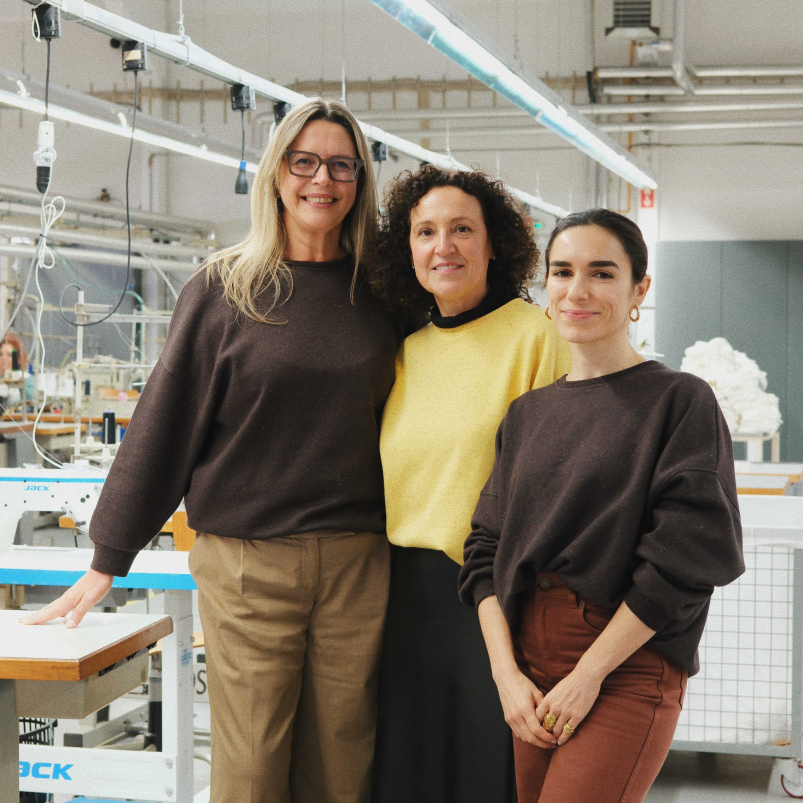PHOTO CREDITS : STÉPHANIE DAVILMA
Originally from Lyon, Lou Chapuis was brought up on a lively cross-cultural cuisine, inspired by her Franco-Vietnamese roots.
After several years in advertising in Paris, she decided to embrace her passion for cooking, and set off on a challenging journey that took her from Mexico to Marseille. As an itinerant chef, Lou multiplies her culinary residencies, mixing local discoveries and creativity, with a particular fondness for Asian flavors and seasonal produce.
This winter, at Sessùn Alma in Marseille, she offers us a warm and authentic cuisine, with broths and fresh herbs taking center stage.
Can you tell us about your career path? It's quite a leap from communications to cooking! What motivated you to leave your job in Paris to embark on a culinary adventure in 2020?
I grew up in Lyon and stayed there for 20 years before setting off and being constantly on the move. I started my professional life in Paris, in an advertising agency. But I've always cooked, it's been part of my life as far back as I can remember. However, I chose not to make it my profession. But I was going round in circles in my job in Paris, and I needed something new and intense. I left my job without any real plan B, went to Mexico, and Covid arrived, so I stayed there. I needed to do something radically different, and cooking was the most authentic and natural direction I could take. I decided not to train. I was afraid of wasting my time learning a cuisine that might be too far removed from the one I love. Today, I don't know if it was the right decision, I think I'll always feel that I don't know enough, but that’s also what drives me to find my own solutions.
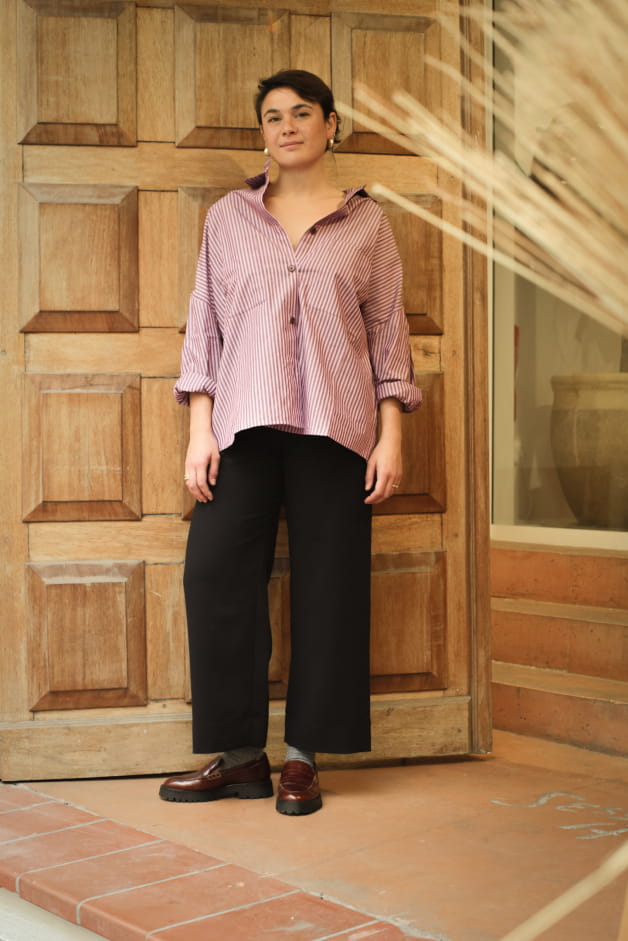
Your cuisine is steeped in Franco-Vietnamese influences. How do your origins and family heritage inspire your creations?
My origins are very present. The cuisine I grew up was a mixture of influences, not at all traditional Vietnamese. It was more broad-based. Today, my dishes always tend towards Asia in one way or another. When it comes to Vietnam, I go for a maximum of freshness, with lots of aromatic herbs and a play on textures. Chillies and nuoc-mâm are never far away.
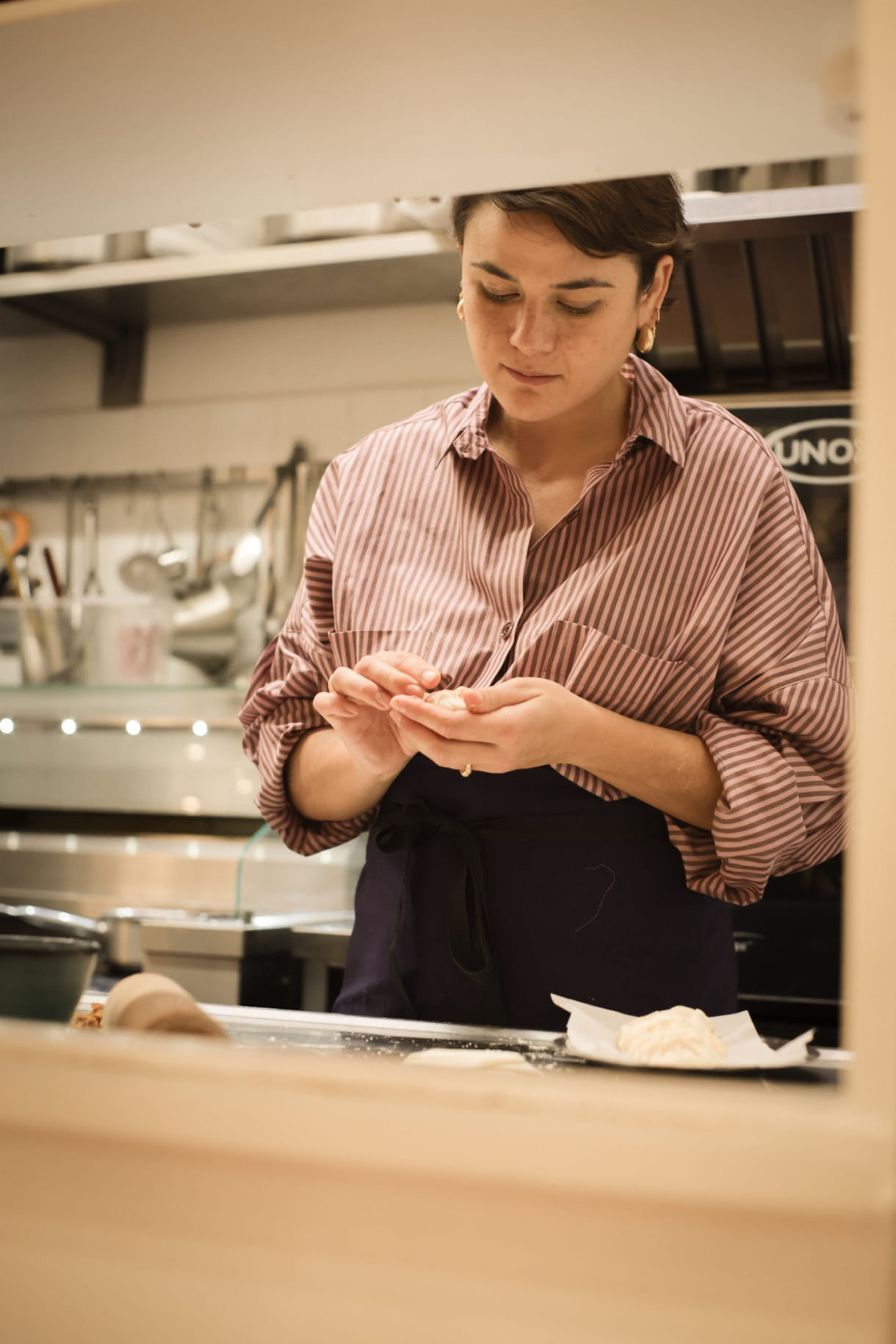
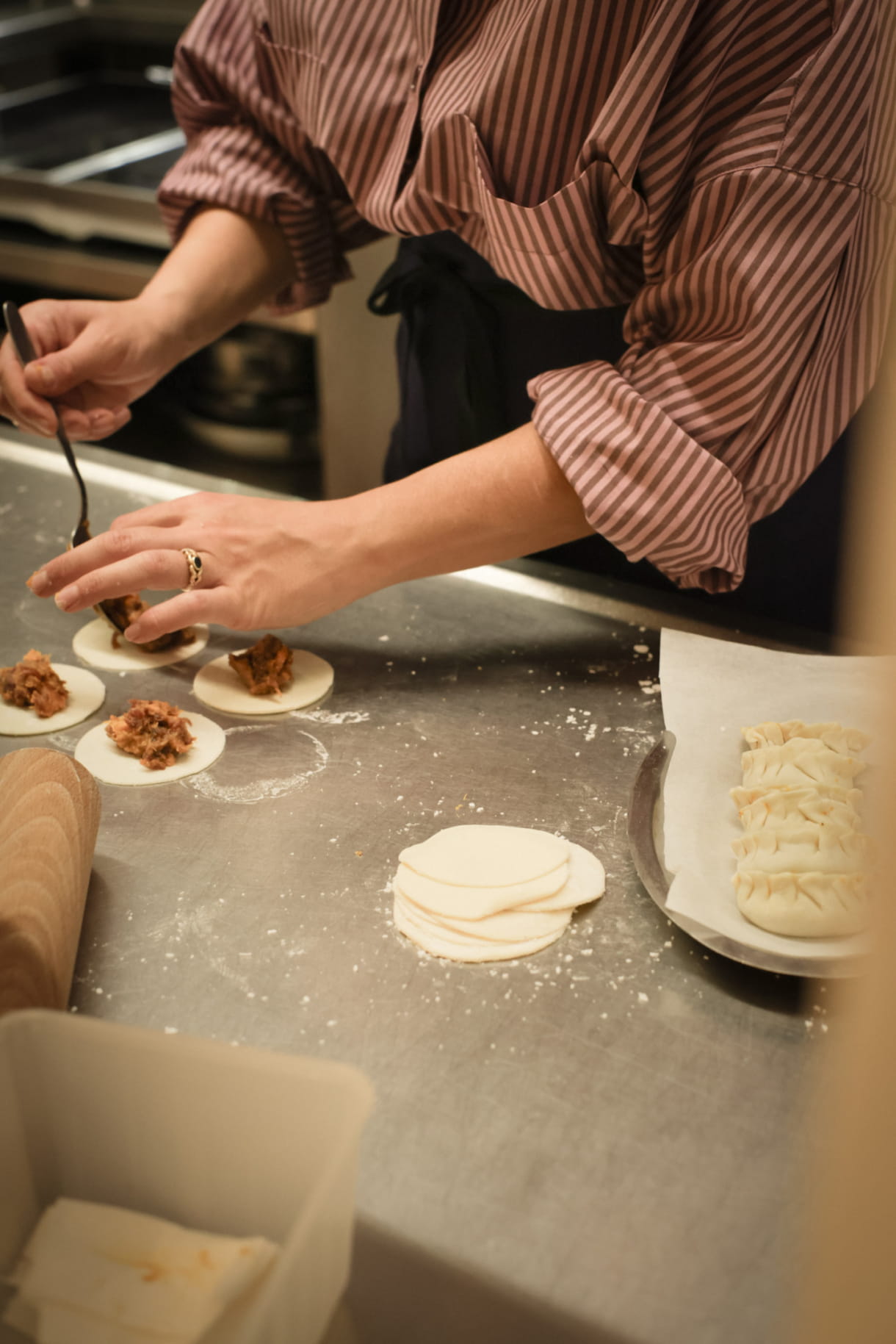
As an itinerant chef, you move from one culinary residency to another. What's your take on this phenomenon?
I find it liberating for chefs to be able to get out of their kitchens and explore different worlds. I'm grateful and delighted to be able to experience so many different things. I don't know how long it will last, so I'm making the most of it. Then again, it also has its limitations, because a cuisine builds over time, in terms of your suppliers, your products or the people you work with. It's a team effort. And it does take a certain amount of time to build something coherent. Today, I see it to have both advantages and disadvantages. I’m glad it exists, but it needs to be structured to enable everyone to do their job properly.
This summer, with the Baïta studio in Arles, you launched an ephemeral snack-bar. What part does street food play in your culinary approach?
I like to do this from time to time; we used to also make a lot of sandwiches at l'Idéal. The range of possibilities is vast. It's a more relaxed approach, very focused on pleasure. It's less pretentious than fine dining, although today's offerings are increasingly sophisticated, and so much the better! Just like the various residencies I'm doing, I don't feel grounded into any particular identity, I enjoy trying out lots of things, street food being one of them.
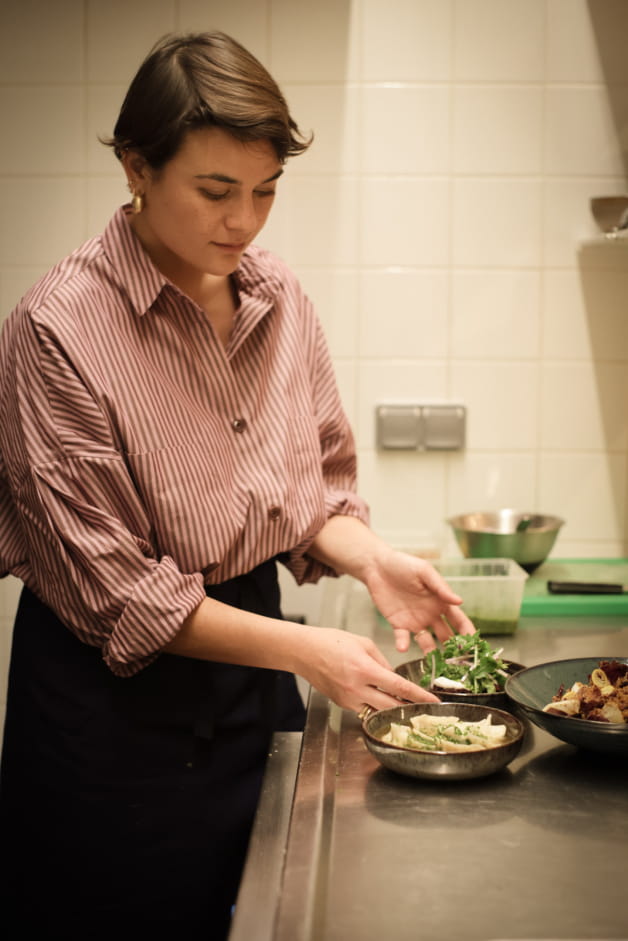
What's your fondest cooking memory so far? A dish, an encounter or a defining moment?
It's a bit clichéd, but cooking is all about meeting people. That's why I'm in this line of work: it's about bringing people together, having them meet each other, and above all, sharing. These days, social networks promote competition, but for me, cooking should be nourishing and good for people. I think my love of cooking began by sharing special moments with my family. It grew stronger after a cooking course when I was 7 in Sonia Ezgulian's restaurant. But the real turning point in my career came here in Marseille, when Julia Sammut put me in charge of her restaurant with just one year's experience under my belt. Wonderful gestures of trust and kindness, made by women with a deep passion for cuisine, for the product, for nurturing and for sharing.
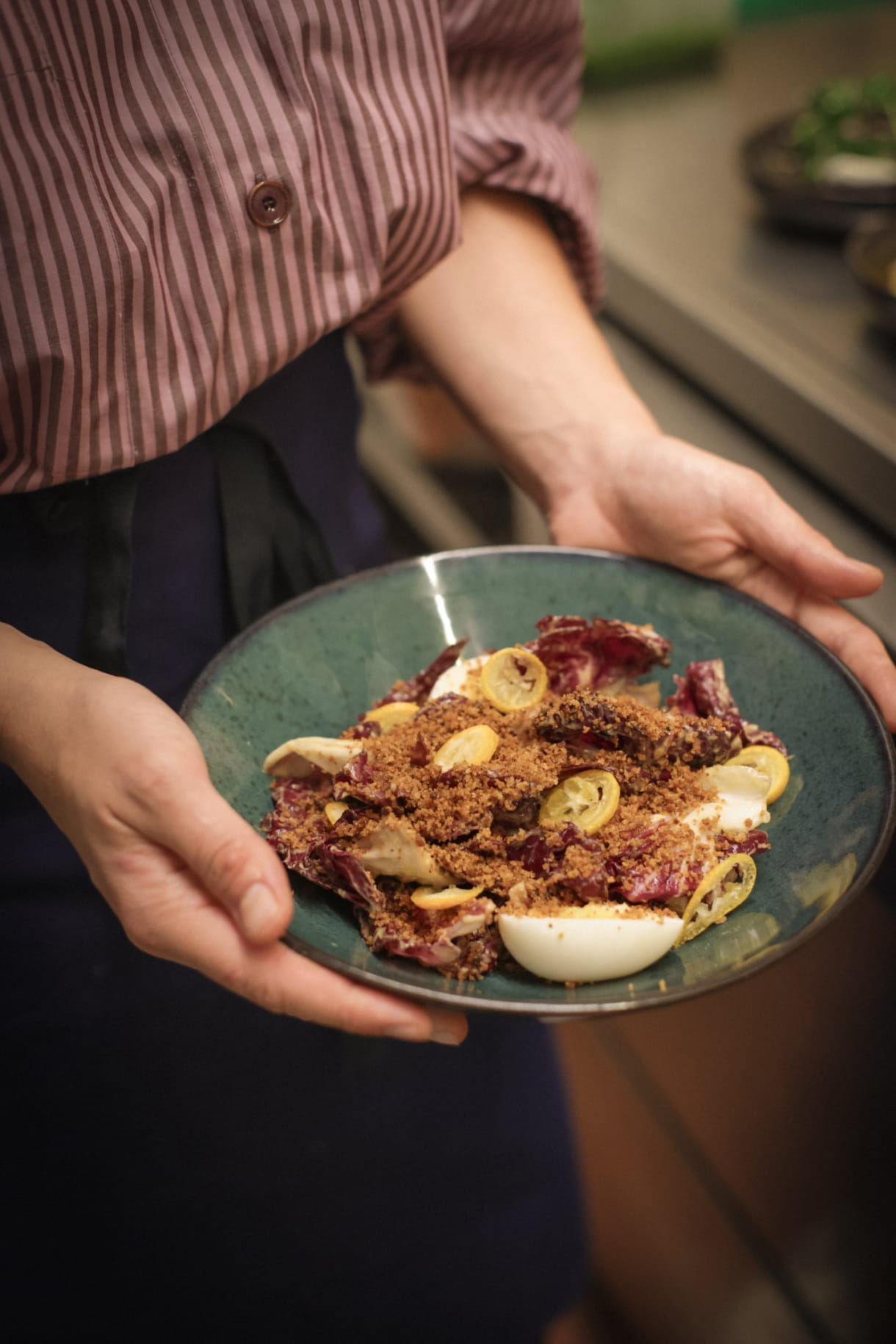
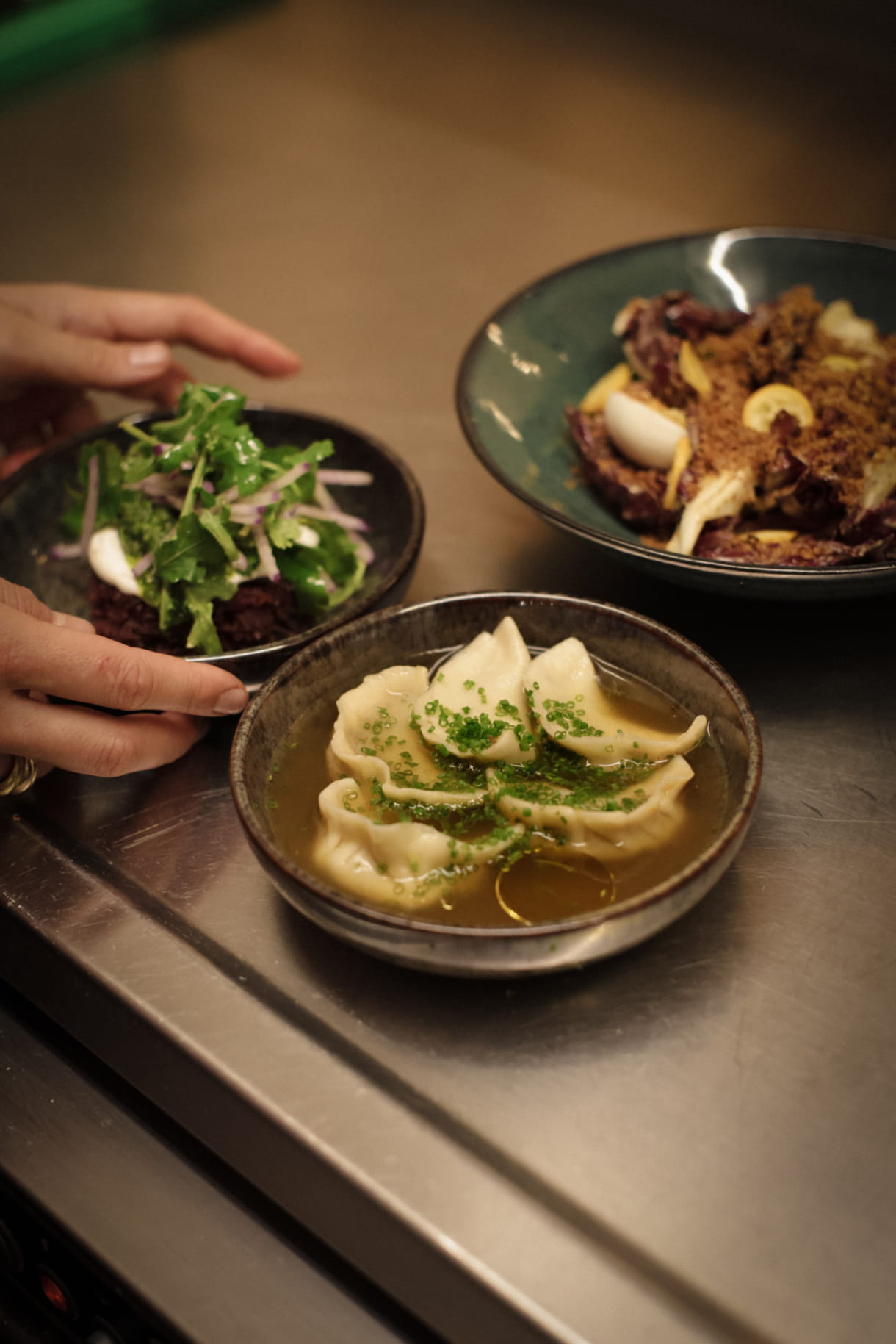
What drew you to Marseille, and how does the city influence your culinary identity and creative projects? How do these ties to Marseille resonate with the spirit and values of Sessùn?
I moved to Marseille 4 years ago because I wanted a change of scenery. It worked out well and everything fell into place very quickly. Marseille is an incubator, and there are so many inspiring people doing their own thing. I think 80% of the people around me are self-employed, and most of them are women. Marseille makes it possible. Financially, it's more accessible, and above all it's less overwhelming than Paris, so there's more room for not being perfect. There are fewer barriers, a little less competition, so people try things out. Of course, there's less money, but there's the sea! For me, Sessùn's values are linked to craftsmanship and raw materials. The quality of products is key to my cuisine, that's where everything starts. I work with committed producers.
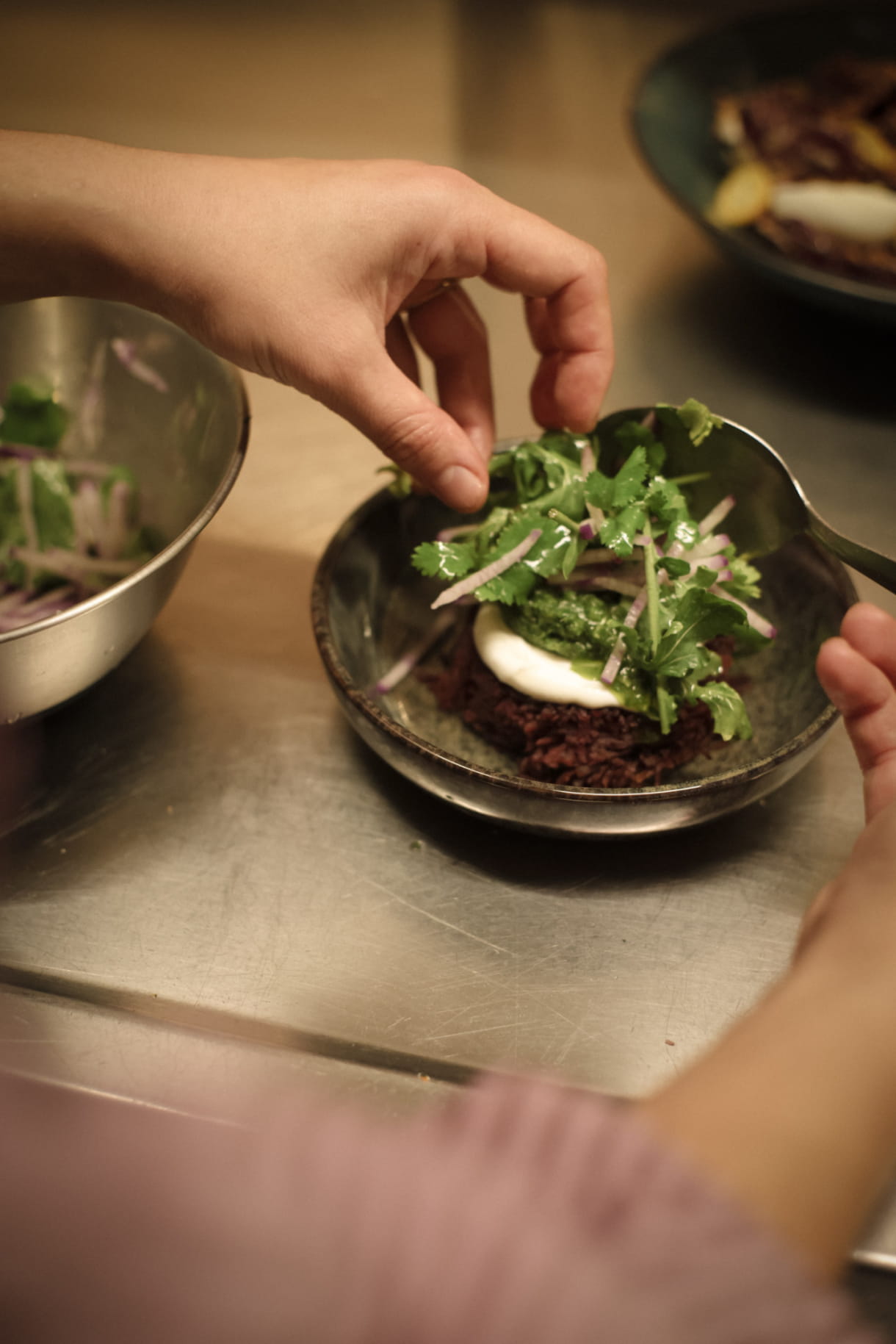
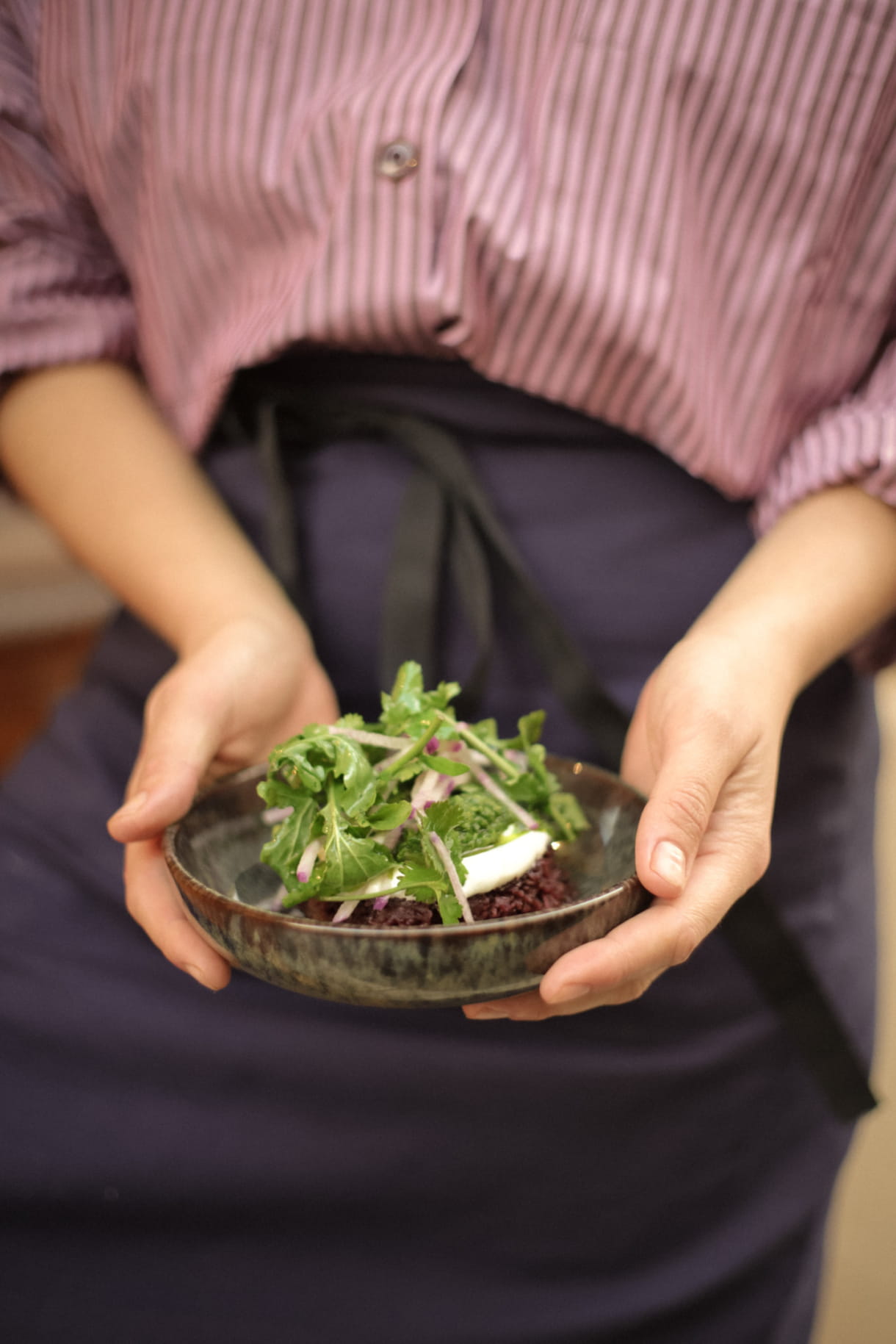
How do you ensure that your culinary creations use seasonal and local produce?
That's always my starting point. And it is challenging when you do residencies in new towns or countries, because you need to soak up the local produce; that's the basics. Of course, there are certain staples that form the backbone of my cooking, irrespective of the place or the season. It's the combination of my basics and the products available that serves as the framework for my menus. The advantage is that this time I'm working at home with producers that I know.
Which type of cuisine would you like to highlight during your residency at Sessùn Alma in Marseille?
As we head into winter, I want to focus on broths and offer comfort food, always with a touch of freshness. Having just returned from a trip to Korea, the emphasis will clearly be on Asian cuisine, for a change! But above all, I'd like to offer good food, which is what I'm looking for with this residency, dishes that are perhaps simpler, but also more authentic, and work on my condiments. With lots of herbs and ravioli, lots of ravioli.
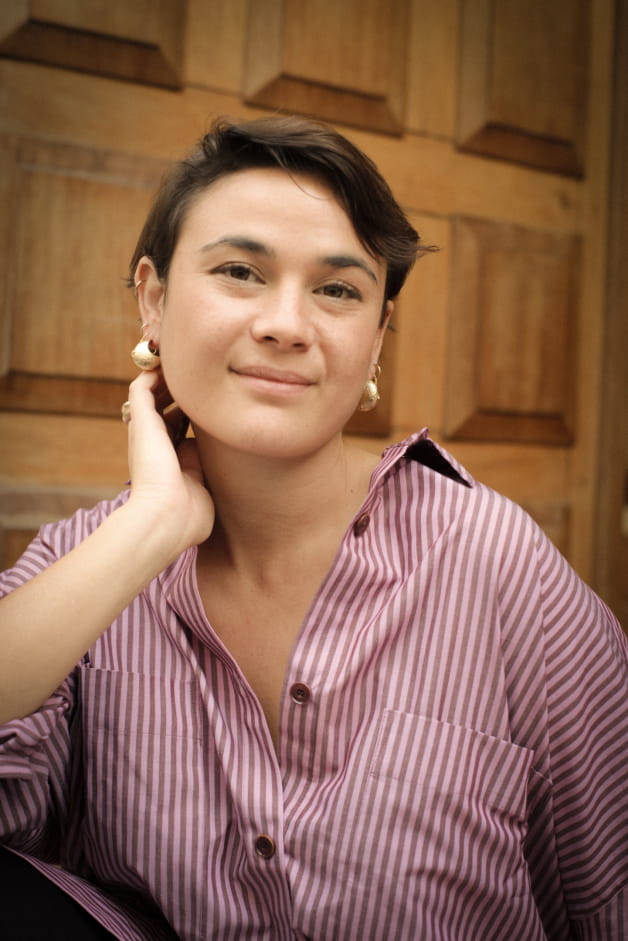
What are your future projects? Where can we discover your next residencies or creations?
For the moment, 2025 is still in the making. All I know is that I'm going to make the most of Marseille during my residency, because I may not see much of it this year.
What do Sessùn and Sessùn Alma mean to you as a brand and a place?
I see Sessùn & Sessùn Alma as a showcase for traditional craftsmanship, with a focus on raw, sunny materials. It’s a place that gives chefs and artists the opportunity to express themselves in a wholesome environment. I'm very excited at the idea of being able to move into a kitchen for several months, with suppliers I know, in order to further develop my work and my identity.
DISCOVER LOU CHAPUIS'S LOOK





